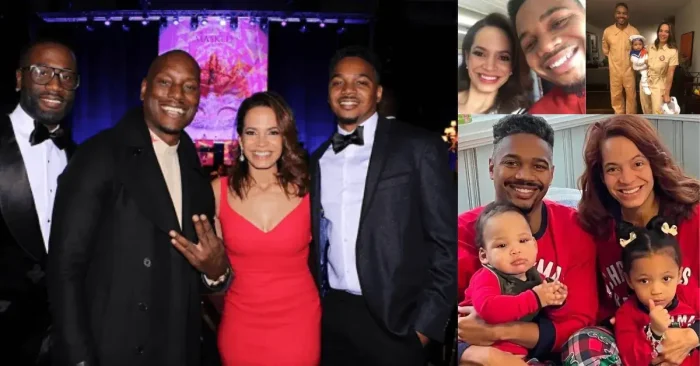Phoebe Bridgers – Biography
Early Life and Background
Phoebe Bridgers was born on August 17, 1994, in Los Angeles, California. Raised in the suburb of Pasadena, she grew up in a creative household. Her mother worked in various roles including as a stand-up comedian and executive assistant, while her father was a set builder. From an early age, Bridgers showed an interest in music, learning guitar at the age of 13. She attended the Los Angeles County High School for the Arts, focusing on vocal jazz, which helped hone her musical sensibilities and emotional expression. Her early influences included Elliott Smith, Radiohead, and Bright Eyes, all of which would later echo in her melancholic and deeply introspective songwriting style.
Early Career and First Releases
Bridgers began performing in coffee shops and small venues in the Los Angeles area during her teenage years. She released a self-produced EP titled “Killer” in 2014, which caught the attention of producer Ryan Adams. Adams signed her to his label, PAX AM, and produced her next release. Despite some early setbacks related to industry misconduct, she persevered, eventually garnering a devoted fanbase through her vulnerable lyrics and haunting melodies. These early experiences informed much of her songwriting, emphasizing themes of personal struggle, trauma, and emotional nuance.
Breakthrough with ‘Stranger in the Alps’
In 2017, Phoebe Bridgers released her debut album, “Stranger in the Alps.” The record was met with critical acclaim and established her as a compelling new voice in indie folk. Songs like “Motion Sickness,” “Funeral,” and “Smoke Signals” demonstrated her ability to turn personal anguish into poetic, cathartic narratives. Her soft, airy vocal delivery paired with minimalistic arrangements resonated with a wide audience. Critics praised her for her storytelling and emotional transparency, and the album became a cult favorite, laying the foundation for her rise as a major figure in indie music.
Collaborative Projects and Boygenius
Beyond her solo work, Bridgers has been a part of several highly praised collaborations. In 2018, she formed the supergroup Boygenius with fellow singer-songwriters Lucy Dacus and Julien Baker. Their self-titled EP showcased each artist’s strengths and offered a cohesive blend of their styles. Boygenius quickly became a critical darling, praised for its raw emotional depth and chemistry among the trio. Bridgers also collaborated with Conor Oberst, one of her idols, forming the band Better Oblivion Community Center. Their 2019 self-titled album received positive reviews and highlighted her versatility and continued growth as an artist.
‘Punisher’ and Mainstream Recognition
Phoebe Bridgers’ second album, “Punisher,” released in 2020, marked a significant leap in both critical and commercial success. It was widely considered one of the best albums of the year, earning her four Grammy nominations, including Best New Artist and Best Alternative Music Album. Tracks like “Kyoto” and “I Know the End” demonstrated her evolution as a songwriter, incorporating more dynamic arrangements and broader emotional themes while retaining her signature vulnerability. The album’s haunting production and candid lyrics about loneliness, identity, and mortality resonated deeply, particularly during the global isolation of the pandemic.
Personal Life and Advocacy
Bridgers is known not only for her music but also for her openness about mental health, sexuality, and political issues. She identifies as bisexual and has been vocal about supporting LGBTQ+ rights, reproductive freedom, and mental health awareness. Her candidness on social media and in interviews has endeared her to fans who appreciate her authenticity. Bridgers has also spoken out about abuse in the music industry, contributing to broader conversations around accountability and safety in creative spaces. Her visibility and advocacy have made her a role model for many, especially younger audiences navigating similar issues.
Recent Work and Ongoing Influence
Following the success of “Punisher,” Bridgers has continued to expand her influence in music and beyond. She contributed to projects by artists like Taylor Swift and The 1975, and her work with Boygenius resumed with a full-length album released in 2023. Her lyrics continue to explore themes of grief, alienation, and the absurdity of existence, all delivered with a distinct mix of wit and sorrow. Bridgers has become a symbol of modern indie music—an artist who speaks directly to the complexities of contemporary life with grace and intensity.
Conclusion
Phoebe Bridgers has carved a space in the music world that is uniquely her own. With her blend of emotional honesty, lyrical depth, and understated musical style, she connects deeply with listeners who find solace and strength in her songs. Her evolution from a local performer to a Grammy-nominated artist reflects not only her talent but also her dedication to truth and vulnerability in art. As she continues to grow and collaborate, Bridgers remains a powerful voice in modern music and a beacon for authenticity in an often superficial industry.
Frequently Asked Questions
What genre is Phoebe Bridgers’ music?
Her music is often described as indie folk, indie rock, and alternative, blending acoustic elements with emotionally rich lyrics.
Has Phoebe Bridgers won a Grammy?
While she has received multiple Grammy nominations, she has not yet won a Grammy as of now.
Is Phoebe Bridgers part of any bands?
Yes, she is a member of Boygenius with Lucy Dacus and Julien Baker and also formed Better Oblivion Community Center with Conor Oberst.
What are some of her most popular songs?
Popular songs include “Motion Sickness,” “Kyoto,” “I Know the End,” and “Garden Song.”
Yes, she is known for her presence on platforms like Twitter and Instagram, where she shares personal thoughts and social commentary.






